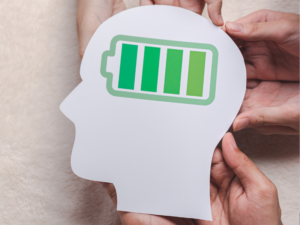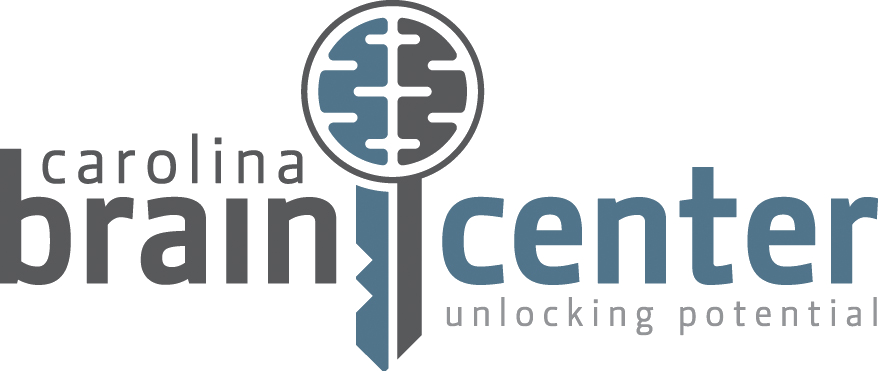Ketones have been gaining more and more attention in recent years, in part due to the popularity of ketogenic diet plans for weight management. However, many people still don’t know much about them. What are ketones? And, besides weight management, what potential health benefits do they offer? Can ketones be used to improve neurological function?
Believe it or not, they can. Ketone therapy, which involves the deliberate elevation of ketone levels in the body, has shown to be extremely beneficial in the field of functional neurology, especially when used in conjunction with hyperbaric oxygen therapy. That’s why Carolina Brain Center is proud to partner with deltaG Ketones to offer our patients ketone therapy services.
A WADA, BSCG, & FDA GRAS-approved ketone supplement, deltaG Ketones were developed by scientists at the University of Oxford and the National Institutes of Health. Below, we’ll delve into how these ketones work and what benefits they offer functional neurology patients. To experience firsthand what deltaG Ketones can do for you, contact Carolina Brain Center today!
What Are Ketones?
Ketones are molecules produced when the body breaks down fats for energy in the absence of sufficient carbohydrates. They serve as an alternative fuel source for the brain and muscles when glucose availability is limited, such as during fasting, a low-carbohydrate diet (like the ketogenic diet), or prolonged physical exertion.
The three main types of ketones produced in the body are beta-hydroxybutyrate (BHB), acetoacetate, and acetone. Of these, BHB is the most abundant. In fact, BHB can itself be divided into two subtypes: D-BHB (which supplies the body with efficient energy) and L-BHB (which is used less for energy and more to synthesize fatty acids).
High amounts of D-BHB can be found in deltaG Ketones, enabling patients to enjoy the benefits of ketone therapy without necessarily having to change their diet.

Benefits of Ketone Therapy
Ketone therapy involves intentionally elevating blood ketone levels through dietary modifications, supplementation with ketone salts or esters, or fasting regimens. This therapeutic approach has garnered attention for its potential in various health realms, including weight management, cognitive enhancement, epilepsy treatment, and neuroprotection.
By inducing a state of nutritional ketosis, ketone therapy offers several potential benefits:
Enhanced Cognitive Function
One of the most notable benefits of ketones is their capacity to enhance cognitive function. Research indicates that ketones serve as a more efficient and cleaner fuel for the brain compared to glucose, leading to improved mental clarity, focus, and concentration. Moreover, ketones have shown potential in mitigating the cognitive decline associated with aging and certain neurodegenerative conditions, offering hope for individuals seeking to preserve their cognitive abilities.
Neuroprotective Effects
Ketones exhibit neuroprotective properties that can safeguard the brain against various neurological disorders. Studies suggest that ketones possess antioxidant and anti-inflammatory properties, which help reduce oxidative stress and inflammation—two significant contributors to neurodegeneration. Additionally, ketones may enhance the production of brain-derived neurotrophic factor (BDNF), a protein crucial for neuronal survival and growth, further promoting neuroprotection.
Management of Neurological Conditions
Ketone therapy has emerged as a potential adjunctive treatment for various neurological conditions. Conditions such as epilepsy, where traditional treatments might be inadequate, have shown promising responses to ketogenic diets or exogenous ketone supplements. The anticonvulsant effects of ketones have provided relief to many individuals, especially those with drug-resistant epilepsy.
Moreover, research into the therapeutic applications of ketones in neurodegenerative disorders like Alzheimer’s disease, Parkinson’s disease, and even traumatic brain injury suggests that ketones can help patients manage these conditions by slowing down disease progression and improving symptomatology.
Improved Energy Metabolism and Brain Health
Ketone bodies act as an efficient energy source for the brain, particularly during times of glucose scarcity. This metabolic flexibility not only sustains brain function but also promotes overall brain health. Ketones provide a more stable and consistent energy supply, reducing the fluctuations commonly associated with glucose metabolism. This stability contributes to sustained mental clarity and alertness, which can benefit individuals seeking peak cognitive performance.
Weight Management and Metabolic Health
As noted earlier, ketone therapy has proven effective for weight management and improving metabolic health. Ketogenic diets, which induce ketosis by significantly reducing carbohydrate intake, have been effective in promoting weight loss and improving metabolic markers like blood sugar levels, insulin sensitivity, and cholesterol profiles. These metabolic improvements can benefit brain health, as conditions like insulin resistance and diabetes are linked to an increased risk of cognitive decline.
Learn More About deltaG Ketones at Carolina Brain Center
While the benefits of ketones for functional neurology patients are impressive, we’ve only just begun to scratch the surface. Now that you know how to answer the question “What are ketones,” the next important thing to ask is “What else can ketones do for us?”
As ketone research continues and more neurological benefits are uncovered, there’s one you can be certain about: Carolina Brain Center will be there every step of the way. We strive to provide our patients with the best and most up-to-date neurological health services. That’s why we’ve chosen deltaG Ketones to be our supplier of ketone supplements.
Do you think deltaG Ketones might be for you? Come into Carolina Brain Center today and let us develop a personalized treatment plan just for you!

